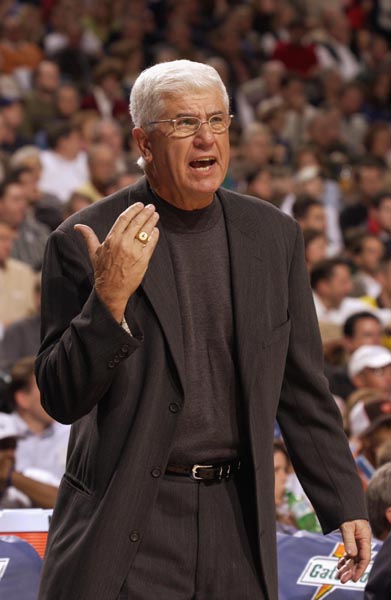Foreign basketball coaches face trying times
 0 Comment(s)
0 Comment(s) Print
Print E-mail China Daily, March 21, 2012
E-mail China Daily, March 21, 2012
 |
|
Del Harris led the Chinese national basketball team in the 2004 Olympic Games. Foreign coaches said they have faced tough experiences in China. |
Coaches are immediately confronted with players who have grown up with different training and different skill sets. Some of it's good. Some isn't.
"The players in China have better hand-eye (coordination), they shoot the ball better and they have softer hands. It's smoother than what I had in Australia," said Goorjian, former coach of the Australian national team.
On the other hand "They don't go at the intensity I like to go at, and when I first came into this, I was furious after every practice," he said.
Coaches find two things consistently lacking: Intensity, and attention to detail. Chinese players are accustomed to training almost year-round, with long practice sessions, often twice a day. The training is so frequent that it can lead to lethargy. Western coaches prefer fewer practices, conducted at higher energy levels. "(The Chinese basketball establishment) wants them to work they work, work, work, work," said Cleamons. "Well at some point, the mule gets tired."
One thing remains universal though: the know-it-all kid. "When young people think they know it all, it's pretty hard to teach them anything new," Cleamons said. "I think they're at the stage where they think they know it, but in thinking they know it their behaviors telling me over and over again 'Well, you're not as good as you think you are.'"
The key seems to be a willingness to adjust. "I think that culturally and historically there's obviously a difference with how we and when I say we, I include myself, obviously tailor our approach to the game," Cleamons said. "I think that our expectations are different."






Go to Forum >>0 Comment(s)